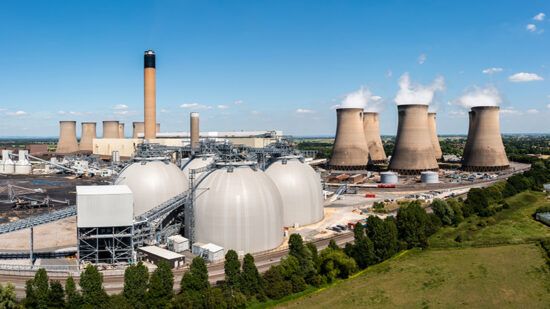Investors must pay closer attention to the companies in which they invest, or face a dent in returns from lawsuits, disrupted supply chains, property damage and regulatory costs over the next three decades.
That was the warning from a series of reports on climate change published to coincide with the second week of the United Nations Framework Convention on Climate Change. The conference, taking place in Poland until the end of this week, has highlighted the issues faced by governments, communities and businesses in transitioning to a low carbon economy.
At the start of week, a group of 415 of fund firms, insurers, pension funds and institutional investors, managing a collective £32 trn of assets, signed a statement in support of hiking the price of carbon and phasing out fossil fuel subsidies.
The statement also called for companies to report reliable and “decision-useful” information on climate issues. The latter point follows sustained grumbling from fund managers that major companies are not reporting on environmental issues in a standardised and organised manner.
The letter from the 415 investment groups made a series of demands from stakeholders, targeting global leaders and corporations, but asset managers and pension funds have a long way to go, too. A 2018 report by Share Action found that just 1% of the world’s largest 100 pension funds are invested in low-carbon solutions and less than a quarter of funds are measuring or reporting on their low carbon investments.
Weather warning
Despite the widespread absence of carbon assessments by major pension funds cited in the Share Action report, fund managers and analysts continue to warn that threats to returns are stacking up in portfolios.
In its 2019 Sustainability Outlook, published on Tuesday, London-based fund house, Schroders, warned that many investors simply have not yet made the link between the vulnerability of a company’s assets and infrastructure to extreme weather events.
“Investors often neglect to thoroughly understand just how vulnerable a company’s physical assets and infrastructure are to severe disruption and damage as a direct result of drastic weather patterns,” the group’s global head of Stewardship, Jessica Ground, said.
“As temperatures climb, so the physical losses from extreme weather events are expected to do so too. This could be especially pertinent in 2019 given that experts expect an El Nino weather pattern to develop, causing warmer temperatures and increasing the possibility of severe weather around the world.”
Knowing the risks
The risks to returns go much further than extreme weather patterns. On Monday (10 December), global law firm Clyde & Co released a comprehensive study of threats being faced by companies from climate change, which it categorised into three areas.
The first group of risks were labelled as physical risks and related to many of the areas that Schroders’ Ground had flagged in her comments. The law firm said that asset values could be substantially harmed by storms and floods, warning that a company’s core revenue streams could be harmed by supply chain disruption, caused by extreme weather.
The second risk group in the report relates to the effect that moving to a low-carbon economy will have on a company’s assets. Changes to regulatory policy and technology could massively devalue assets in investor portfolios, it said, as major economies seek to reduce carbon intense activities.
Hermes Investment Management’s chief executive, Saker Nusseibeh, said the financial case for acting is becoming crystal clear.
“Companies that aren’t thinking about how to adapt to the low-carbon economy are at risk of being left with stranded assets, while those that are offering solutions are really well-placed to thrive,” he added.
The third round of risks outlined by Clyde & Co relate to the cost of future legal claims. The law firm imagines a future where companies must fend off lawsuits from third parties who believe companies – and their directors – failed to adequately assess future risks. This is already starting to happen, according to one senior partner at the firm.
“We’re starting to see lawsuits where damages are sought to compensate for future losses, and product liability arguments are being used,” explained Neil Beresford, a partner at Clyde & Co.
“Climate change litigation is not new – but now we are seeing new types of claims emerge, brought by a wider range of claimants against businesses, with potential for increased directors’ and officers’ risk too,” he added.
A copy of the full Clyde & Co report is available here.








